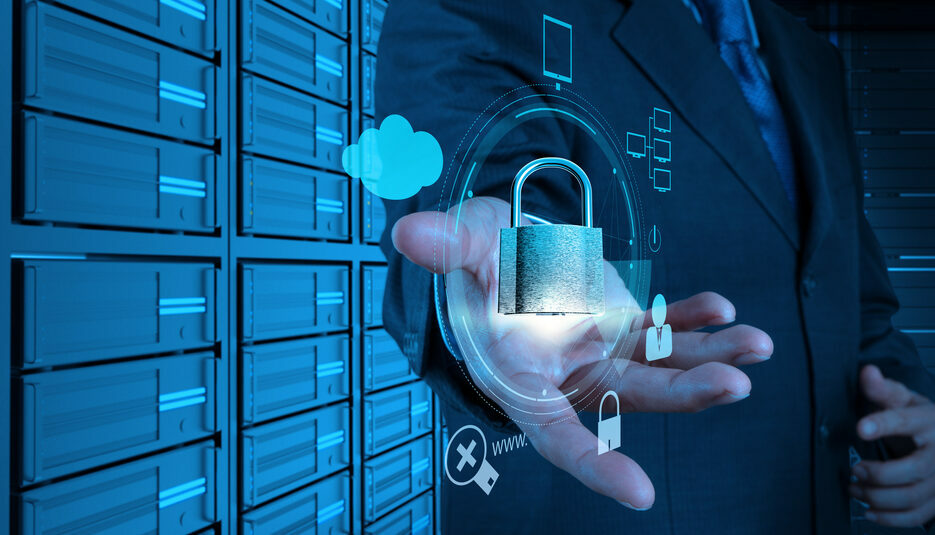
Security Services and Solutions
Ready to safeguard your organization
Malware is escalating in sophistication, requiring a business of any size to reconsider their level of security for now and into the future. Our team of dedicated professionals understands what is at stake and provides solutions to fit every size and need. Capability to answer insurance company surveys required to get protection against intrusion and cyber-attacks. We deliver cost-effective security services and solutions to safeguard your organization so you can focus on running your enterprise and taking care of your clients.
Antivirus Solutions
Flexible cloud security for your users on and off the network. Tailored to your specific needs using state of the art programs designed to prevent, detect and remove malware infections on individual computing devices, networks and IT systems that deliver a secure, seamless user experience, anywhere users work.
Timely Windows Update
Security resilience enables organizations to protect the integrity of business amidst unpredictable threats or change, to be ready for anything by delivering unified experiences with updates and status reports. Windows update service is responsible for automatically downloading and installing critical and important updates onto your computers, which is instrumental in keeping your computer up to date with vital security patches.
This includes:
- Coverage of notebooks, workstations and mobile devices to Servers
- Fleet management of business computers
- Alert notifications of current required updates
- Follow up notifications of computers that are missing updates
Internet Filtering
Internet Filtering or blocking is a cyber security measure, through use of machine learning techniques to detect both known and unknown or emerging malware. The service blocks distracting websites, monitors internet use, and keeps your network secure against web-based threats. Organizations use DNS blocking/filtering to secure their environment against phishing attacks and other cyberthreats.
Case Study
There have been instances where clients had believed to have fallen victim to a phishing scam. However, upon further investigation, it was discovered that their data remained secure, thanks to the protective measures enforced by the internet filtering software ISC had installed.
MultiFactor Authentication (MFA)
MFA is a risk management and security best practice of confirming a person’s identity through a layered approach of securing data and applications where a system requires a user to present a combination of two credentials for verification when trying to sign in.
The two “factors” are:
- Something you know – A password or memorized PIN
- Something you have – A smartphone, or secure USB key
Case Study
There have been instances where clients had believed to have fallen victim to a phishing scam. However, upon further investigation, it was discovered that their data remained secure, thanks to the protective measures enforced by the internet filtering software ISC had installed.
Disk Encryption
Disk encryption technology transforms data into unidentifiable code. The goal is to make the data unreadable to unauthorized individuals.
Disk encryption software or hardware can encrypt every bit of data on a disk or disk volume. To turn the data back into readable information, an authorized user must unlock the disk encryption software using a password, security token, or biometrics to access the disk encryption keys.
Implementing disk encryption has different approaches:
Full Disk Encryption (FDE) encrypts the entire drive and is a high-security encryption method. In the event of a lost or stolen laptop, the data will be inaccessible to whoever finds the device.
File or Folder Level Encryption allows the user to select specific files and folders to encrypt, allowing more control over which data is protected instead of encrypting the whole disk.
Advanced Encryption Standard (AES) is among the most secure and popular encryption standards available. Making disk encryption a key component in data security strategies, a company can protect sensitive data.
The Use of Disk Encryption Offers:
- Protection from data theft caused by device loss or system breach.
- Provides regulatory compliance to businesses that have a responsibility to protect sensitive data.
- Demonstrates a commitment to safeguarding customers’ and partners’ data.
- Limits access to certain data that is crucial within a business. Disk encryption can ensure that only individuals with approval can access specific data.
Case Study
Recently, one of our clients had a laptop stolen. The device was secured, and the contents made inaccessible by disk encryption service, preventing data theft and a system breach. By saving valuable data, they prevented potential monetary loss and preserved their reputation.
Video Surveillance
Surveillance is a universal need – there are many varying degrees of surveillance equipment and services available. Your company will be evaluated to determine the best solution to fit your needs and priorities.
- What kind of storage
- Potential for additional capability as your company grows
- Functionality
- Data backup
- File sharing
- Streaming multimedia files to devices

Ongoing Education
This is not just a break room poster. Security awareness training provides programs designed to help users and employees understand the role they play in helping to combat information security breaches. Through frequently assigned courses, including enhanced user awareness training to prevent infection of systems.
Cybersecurity training awareness:
- Making cyber security training clear and understandable to your employees by avoiding technical jargon that may confuse employees and cloud the message.
- Encourage taking great care over devices by bringing awareness that their gadgets act as a gateway to your organization’s network, even in the confines of their home.
- Teach employees how to spot suspicious activity to enhance their cybersecurity awareness and to report suspicious signs immediately. Understanding that even a false alarm may still be beneficial by clearing up errors in their device that hampers productivity.
- Reinforce confidentiality, working from home tends to make people more complacent which can extend to cybersecurity. Training will reinforce the importance of passwords and authentication, even if working in their pjs.
